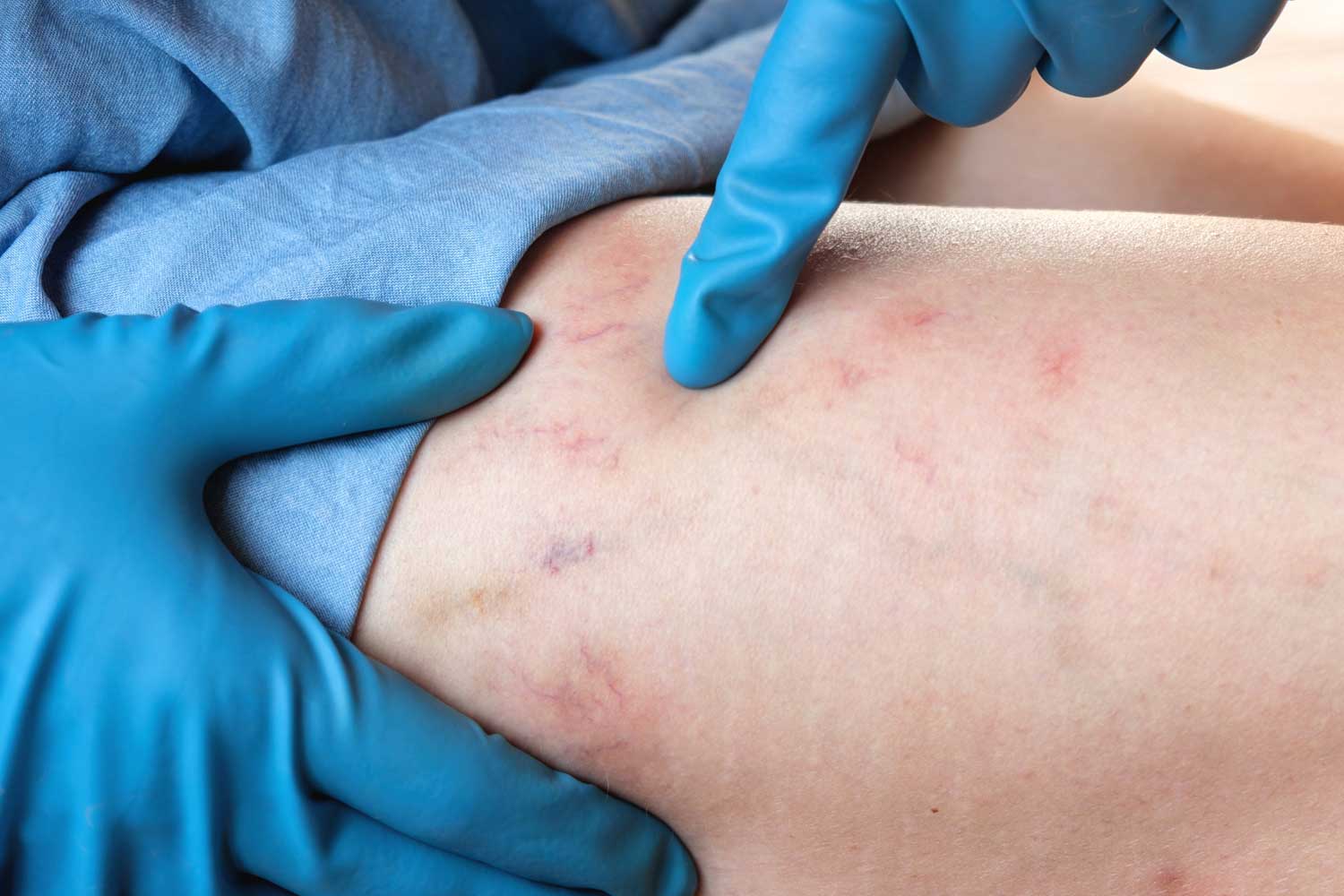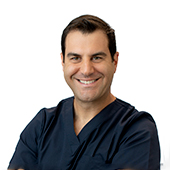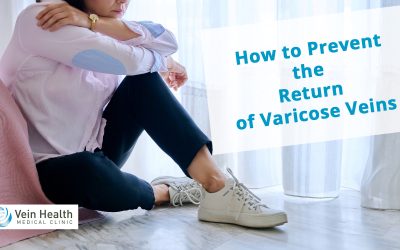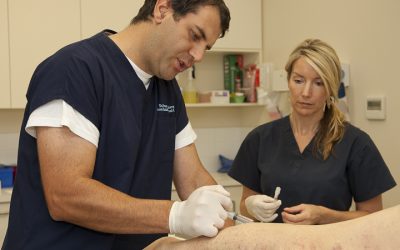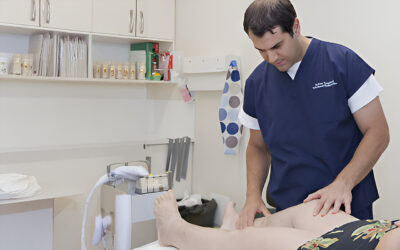Varicose veins can be a persistent problem for many patients. Despite undergoing treatment to address their varicose veins, some patients find that their veins recur or fail to improve. There are several reasons why varicose veins may recur, and understanding these reasons is important in developing effective treatment plans.
Ongoing venous disease progression
One reason why varicose veins may recur is due to ongoing venous disease progression. Although varicose veins are often treated as a one-off problem, the truth is that the development of varicose veins can be a lifelong issue for some patients. Ongoing venous disease can lead to the development of “incompetent veins” throughout a patient’s life, which can result in the recurrence of varicose veins. As a result, post-treatment reviews, ultrasound scans, and assessments over subsequent years are important to identify any potential recurrence of varicose veins and to develop appropriate treatment plans.
What are incompetent veins?
An incompetent vein is a vein that has faulty or damaged valves that do not function properly. The valves in veins are responsible for directing blood flow back to the heart by preventing the backward flow of blood. When a valve becomes incompetent, it fails to close properly, allowing blood to flow backward and pool in the vein, leading to venous insufficiency and the development of varicose veins. An incompetent vein can also cause other symptoms such as leg swelling, pain, and fatigue. Treating incompetent veins is an essential part of managing venous disease and preventing varicose vein recurrence.
Inadequate initial diagnosis
Inadequate initial diagnosis is another reason why varicose veins may recur. In some cases, the wrong veins may have been treated, or the right veins may have been treated with the wrong techniques. Without an expert eye on a comprehensive ultrasound, the feeder veins may not be identified. If these incompetent veins, where the problem originates, are not identified, varicose veins can recur.
Inadequate or Incomplete Treatment
Inadequate or Incomplete Treatment is another reason that can lead to the recurrence of varicose veins. If the incorrect treating technique is applied to the veins, the problem veins may not only recur but also create more and more varicose through the thighs and leg. Overlooking pelvic veins, perforators, Lymph Node Venous Networks, Intramuscular Venous Malformations and Persistent Embryonic Veins can result in both a continuation and worsening of the vein problem. In the past, Neovascularisation was blamed for many of the recurrent primitive veins in the groin and pelvis. Over time , we have discovered through improvements in Duplex Ultrasound technique, that these veins were always there in some individuals but have just been exacerbated by an inadequate treatment.
How should recurring varicose veins be treated?
To address this problem, treating doctors must have skill and expertise in ultrasound diagnostics. The treating phlebologist needs to have a thorough understanding of why varicose veins have recurred, where to look for them, and how to assess them on ultrasound.
The ultrasound equipment must be highly advanced to detect even the smallest of recurrent blood vessels. Many of the tiny vessels are difficult to observe with older ultrasound equipment. The treating doctor must have a full range of treatments at their disposal, including Tumescent Assisted Sclerotherapy, ultrasound-guided sclerotherapy, and endovenous laser ablation techniques.
Many veins, particularly those that have recurred after stripping surgery, often do not respond to just sclerotherapy. Using Vein Glue or Tumescent Anaesthetic with Laser Ablation (EVLA) can be effective treatments for recurrent varicose veins.
What should the patient do?
In addition to proper treatment, patients can take steps to reduce the risk of varicose veins recurring. Regular reviews with the treating doctor, follow-up scans, and periodic assessments to address vein disease progression can help to maintain the health of the veins. Lifestyle modifications, such as maintaining a healthy weight, exercising regularly, and avoiding prolonged periods of standing or sitting, can also help to reduce the risk of recurrent varicose veins.
Key takeaways:
- varicose veins can be a persistent problem for many patients, and understanding the reasons for recurrence is essential in developing effective treatment plans.
- Ongoing venous disease progression, inadequate initial diagnosis, and neovascularity are common causes of recurrent varicose veins.
- Addressing recurrent varicose veins requires expertise in ultrasound diagnostics and a variety of treatment options.

